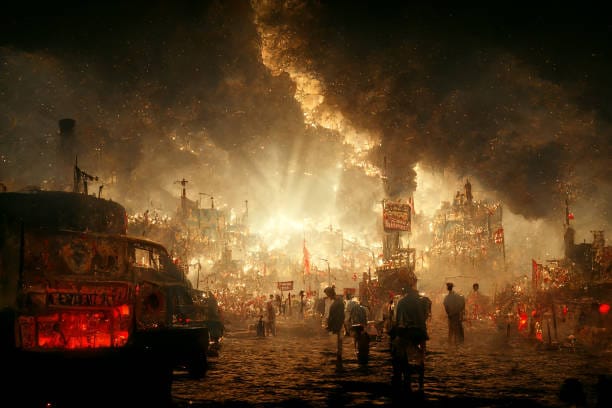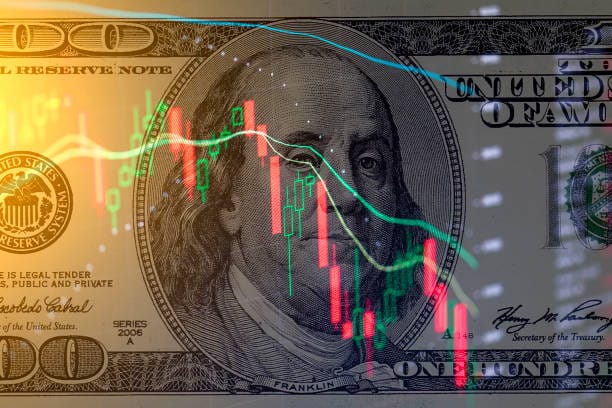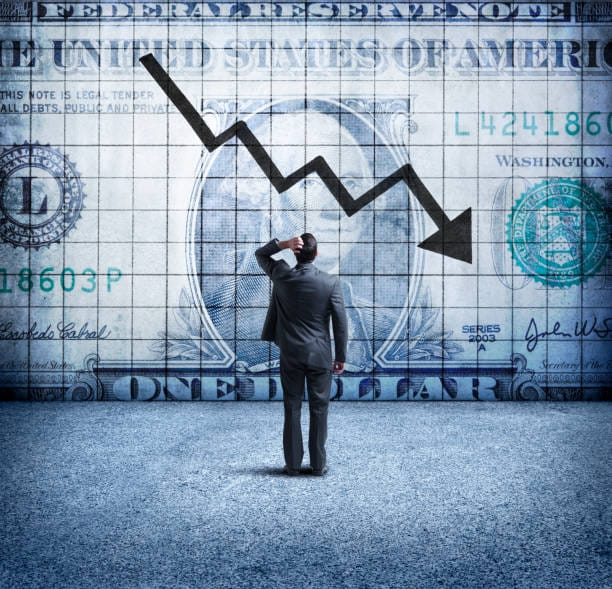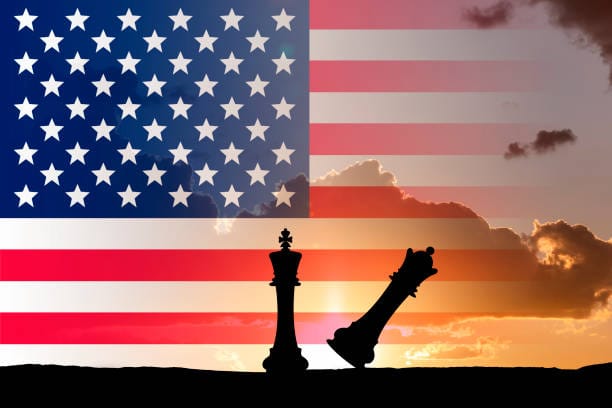IS THE DECLINE OF AMERICAN EMPIRE REAL OR IMAGINED

The public perception of the American empire, at least to those within the United States who have never seen the empire dominate and exploit the “wretched of the earth,” is radically different from reality.
These manufactured illusions, ones Joseph Conrad wrote so presciently about, posit that the empire is a force for good. The empire, we are told, fosters democracy and liberty. It spreads the benefits of ‘western civilization’.
These are deceptions repeated ad nauseam by a compliant media and mouthed by politicians, academics and the powerful. But they are lies, as all of us who have spent years reporting overseas understand.

Matt Kennard in his book The Racket – where he reports from Haiti, Bolivia, Turkey, Palestine, Egypt, Tunisia, Mexico, Colombia, and many other countries – rips back the veil. He exposes the hidden machinery of empire. He details its brutality, mendacity, cruelty and its dangerous self-delusions.
In the late stage of empire, the image sold to a gullible public begins to entrance the mandarins of empire. They make decisions based not on reality, but on their distorted visions of reality, one coloured by their own propaganda.
Matt refers to this as ‘the racket’. Blinded by hubris and power they come to believe their deceptions, propelling the empire towards collective suicide. They retreat into a fantasy where hard and unpleasant facts no longer intrude.
They replace diplomacy, multilateralism and politics with unilateral threats and the blunt instrument of war. They become the purblind architects of their own destruction.

Americans have a long history of worrying about our decline. Shortly after the founding of the Massachusetts Bay colony in the 17th century, some Puritans lamented a decline from earlier virtue. In the 18th century, the founding fathers focused on the history of Rome, and worried about the decline of the new American republic. In the 19th century, Charles Dickens observed that if you listen to its citizens, America “ always is in an alarming crisis, and never was otherwise.”
One problem in assessing decline is that the U.S. never had the complete control that some imagine. Even when the U.S. had preponderant resources, it often failed to get what it wanted. Remember a year like 1956 when the U.S. was unable to prevent Soviet repression of a revolt in Hungary; French loss of Vietnam, or the Suez invasion by our allies Britain, France and Israel? We should be wary of viewing the past through rose-tinted glasses.
Episodes of “declinism” tell us more about popular psychology than geo-political analysis, but they also show how the idea of decline touches a raw nerve in American politics. The issue will lead to countless charges and denials in this election year. Sometimes anxiety about decline can lead toward nationalistic and protectionist policies that do us more harm than good. On the other hand, periods of hubris such as 2002 can lead to damage from mistaken policies such as the Iraq War. There is no virtue in either understatement or overstatement of American power.
What sort of a world am I leaving to my grandchildren and their “Generation Z”? Is the American Century Over? I conclude that the answer is “no,” but that American primacy in this century will not look like the twentieth century. I argued that the greatest danger we face is not that China will surpass us, but that the diffusion of power at home and abroad may produce entropy, or the inability to get anything done.
China is an impressive peer competitor with great strengths but also weaknesses. In assessing the overall balance of power, the U.S. has at least five long-term advantages. One is geography. The U.S. is surrounded by two oceans and two friendly neighbors, while China shares a border with fourteen other countries and is engaged in territorial disputes with several. The U.S. also has an energy advantage, whereas China depends on energy imports. Third, the U.S. derives power from its large transnational financial institutions and the international role of the dollar. A credible reserve currency depends on it being freely convertible, as well as on deep capital markets and the rule of law, which China lacks. The U.S. also has a relative demographic advantage as the only major developed country that is currently projected to hold its place (third) in the global population ranking. Seven of the world’s fifteen largest economies will have a shrinking workforce over the next decade, but the U.S. workforce is expected to increase, while China’s peaked in 2014. Finally, America has been at the forefront in key technologies (bio, nano, and information). China, of course, is investing heavily in research and development and scores well in the numbers of patents, but by its own measures its research universities still rank behind American ones.

All told, the U.S. holds a strong hand in the great power competition, but if we succumb to hysteria about China’s rise or to complacency about its “peak,” we could play our cards poorly. Discarding high-value cards—including strong alliances and influence in international institutions—would be a serious mistake. China is not an existential threat to the U.S. unless we make it one by blundering into a major war. The historical analogy that worries me is 1914, not 1941.
My greater concern, however, is about domestic change and what it could do to our soft power and the future of the American century. Even if its external power remains dominant, a country can lose its internal virtue and attractiveness to others. The Roman Empire lasted long after it lost its republican form of government. As Benjamin Franklin remarked about the form of American government created by the founders: “A republic if you can keep it.” Political polarization is a problem, and civic life is becoming more complex. Technology is creating an enormous range of opportunities and risks that my grandchildren will face as they cope with the Internet of Things, AI, big data, machine learning, deep fakes, and generative bots—to name but a few. And even larger challenges are approaching from the realms of biotechnology, not to mention coping with climate change.

Some historians have compared the flux of ideas and connections today to the turmoil of the Renaissance and Reformation five centuries ago, but on a much larger scale. And those eras were followed by the Thirty Years’ War that killed a third of the population of Germany.
Today, the world is richer and riskier than ever before. I am sometimes asked whether I am optimistic or pessimistic about the future of this country. I reply, “Guardedly optimistic.”
America has many problems—polarization, inequality, loss of trust, mass shootings, deaths of despair from drugs and suicide—just to name a few that make headlines. There is a case for pessimism. At the same time, we have survived worse periods in the 1890s, 1930s and the 1960s as I have described. For all our flaws, the U.S. is an innovative society that, in the past, has been able to recreate and reinvent itself. Maybe Gen Z can do it again. I hope so. We should be wary of counting too heavily on American exceptionalism, but my guarded optimism is described in this account of what it was like to live through the first eight decades of the American century.

THINGS YOU MAY NOT KNOW: It’s okay to laugh at this. It’s actually kind of silly. Human beings are a silly species. And we’ve have done a great deal of harm to our future. There is plenty of time to be drab and withdrawn from this reality, but sometimes, we just need a good laugh in the face of danger.
THINGS YOU MAY WANT TO SAVE: OUR DEMOCRACY.
ZENTRAVELER SAYS: SINCE WE ARE IN A DECLINE HOW ABOUT A REALITY CHECK.
From here to Infinity is a relatively short ride! The next leg takes eons and eons as you fly through the Barycentric Dynamical Time Zone! …and on and on and on. Follow the Zentraveler Newsletter often for Travel, Health and Zen-like stories and such. Where else can you get a THREE IN ONE NEWSLETTER FOR THE PRICE OF FREE.

ZENTRAVELER IS A PERSONAL NEWSLETTER, DESIGNED TO GIVE TRAVEL, HEALTH, WRITING AND HUMOR INCLUDING HELPFUL HINTS WITH A ZEN LIKE QUALITY.
PLEASE CHECKOUT MY NEW VIDEO PODCASTS AT ZENTRAVELER ON YOUTUBE...THANKS
